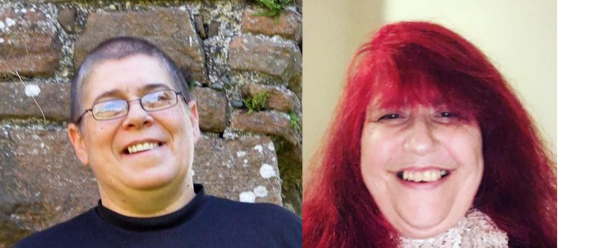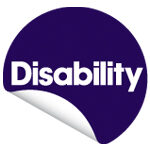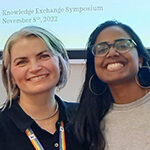Economic (In)Justice and disability rights
Our speakers

Gail Ward has for many years been a very active disability campaigner and an active member in the community, fighting on local issues. Despite her disabilities she continues to support ordinary people. Gail was behind Defend Tynedale Hospital Campaign and Keep the NHS Public and was out helping the community during the floods which hit communities with the Tynedale Flood Appeal, which helped many in the constituency. Gail was previously a Trustee at West Northumberland Food Bank, based in Hexham. She organised huge opposition to the bedroom tax which she feels penalises those at the bottom of the ladder and has done lots of public speaking at events across the UK against austerity measures. She has met politicians on a regular basis to discuss the effects policies have on ordinary people’s lives as well as submitted policy documents to The Labour Party. Gail founded Hands 2 Mouth Project which helped many people across the UK understand and navigate Universal Credit when it first rolled out via workshops and has worked with TUC Northern on Universal Credit and Universal Credit and Disabled Workers under COVID -19. Gail also submitted evidence to UNCRPD Inquiry on how Universal Credit violated disabled people’s rights for those needing state support.
Rona Topaz is Disability Rep for Open Labour London. She is mobility and hearing challenged and has mild vascular damage. She is a volunteer for Journey to Justice, Zero Hours Justice, MRS Independent Living, Help on Your Doorstep, London Renter’s Union and others. Rona is also Learning Disability Support Officer for Healthwatch Kingston, in addition to leading the Musical Memories dementia choir for Norden Farm Arts Centre, and hosting regular musical performances for the Likee social network.
The Event: October 29th 2020 on Zoom
The focus of our event was on issues in the workplace and institutions and what we can do to ensure rights for disabled people. We wanted to allow ample time for questions and discussion, and were keen that people should go away from it with action points, things they can do, ways to get involved.
Rona Topaz, “I enjoyed speaking about my workplace treatment as a disabled person. In spite of flaws, it is streets ahead of how I’ve been treated in previous work environments, in terms of employment rights as well as levels of autonomy provided. The main thing in any employment is to be competent. As a disabled employee, you must not be merely competent but exceed expectations. This resulted in an extension of my original hours and fixed term contract length. However. It is fair to say that my job was almost certainly created as part of a tick box exercise, and I am quite possibly the only person in the organisation that cares about the welfare of disabled people.”
Gail Ward, “It’s vital disabled people, employers and unions work together but often this is fragmented as most are able bodied people who pay lip service to disabled people’s needs. It could be a lot stronger if they engaged with disabled workers and really listened to them and ed them to lead the way. We need to address issues that disabled people face in the workplace, from accessibility, reasonable adjustments and workplace recognition of unions. There needs to be positive engagement when disabled workers raise issues so complaints are not brushed aside by either employer or union reps. Many lack any type of training apart from equality paperwork.”
After Rona and Gail spoke about barriers to equality whether as a result of unconscious bias or prejudice, participants went into Break Out Groups to discuss:
“What would be best practice for an employer to ensure equality for disabled people?”
Feedback included:
- Each disabled person is different of course, with varying needs.
- There is a lack of understanding about the difference between a medical and social model of disability. Disabled people are often disabled by the hostility of society.
- Many disabled workers are isolated without the most basic rights of access to information, space and equipment such as grab rails, ramps.
- Too often they are seen as objects of ‘pity’ even when working for an employer who is thoughtful and looks after their employees.
- There is a need for employers and colleagues’ education and training in awareness and provision as well as greater opportunities for career progress.
- Covid 19 and the lockdown has both exacerbated these barriers and increased poverty while also enabling disabled people to take part in meetings and events.
- We need more collective action to ensure everyone’s rights and equality policies which are actually implemented.
Gail shared this link to a booklet she wrote for activists:
https://www.dropbox.com/sh/6omh3j5l1oq3xi7/AAAuXmVVlXXve8QYspbIXDFLa?dl=0
And she posted this report on the global failure to protect the rights of disabled people:
NEXT STEPS suggested by Rona Topaz
Commission on Social Security: https://www.commissiononsocialsecurity.org
If you are employed or working freelance:
Join Unite
If you are retired/unemployed
Join Unite Community
https://unitetheunion.org/media/1389/britains-community-membership-join-form.pdf
Affiliate to or join: Disability Rights UK https://www.disabilityrightsuk.org/
DPAC (Disabled People Against Cuts): https://dpac.uk.net/
Join Liberty and get involved in their campaign to replace the Coronavirus Act: https://www.libertyhumanrights.org.uk/
The suggestion about putting pressure on the EHRC (Equality and Human Rights Commission) is a good one, but best done as part of collective action: https://www.equalityhumanrights.com/en
Feedback
“I found the meeting enthralling. I woke up thinking, “We believe we can stand in another person’s shoes and understand their experience but we can’t”. It made me realise how glaringly ignorant I was. I’d never heard any of that before and it made me change my concepts. It was really powerful.”
“I really liked the contrast between the two speakers. Rona talked about the Equality Act (in theory and practice) and her personal experience and Gail gave more of an overview of disability rights activism and the urgent need for change. They were both passionate and compelling. Thank you.”

Thursday October 29th, 8-9 pm on Zoom
Hear Rona Topaz (Disability Officer, Open Labour London) and
Gail Ward (disabled advocate) discuss how to overcome barriers to employment for disabled people and the idea of a guaranteed basic income for all.
The focus of the event was on issues in the workplace and institutions, what we can do and ways to get involved. Hosted by Journey to Justice as part of our Economic (In)Justice project.
For details of London Challenge Poverty week visit:
https://londonchallengepovertyweek.org.uk




